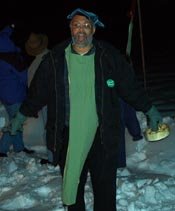The Beatles as Musicians: Volume I: The Quarry Men Through Rubber Soul By Walter Everett
A stream of consciousness review by Don Labriola
Just began reading the intro to Volume I and if this book walks the walk as well as it talks, it'll be a terrific read. According to the author, at least two years of college-level music theory are required to follow much of his discussion, but regardless of the readers' background in musicology, I think there will be a lot here that would be of interest to any serious Beatles fan.
The intro states that the book is the result of "the study of many thousands of audio, print, video, and multimedia sources, including the close consultation of uncounted audio recordings of the Beatles' compositional process, traced through tapes that are treated as the equivalents of compositional sketches and drafts. All available concert, broadcast, and demo recordings in both audio and video formats have been scoured for the broadest possible understanding of what the Beatles did musically... The reader will find particularly helpful both the thoroughness with which every recording is contextualized, both historically and musically, and the fact that aspects of the Beatles' choices of instruments, vocal production techniques, recording equipment, and studio procedures -- the essence of their recording practice -- are exposed here as in no other source."
As if that isn't enough, the book is meticulously indexed and includes huge reference and notes listings, as well as musical references for the reader whose musicology chops may be a bit rusty, such as a table of "chord functions", which describes how each chord form is typically used in the Beatles' music (one example: "III#: Aside from its implied role as V of VI, III# is known only as a surprising substitute for I6 on its way to IV in the reharmonizing codas of 'I Want to Hold Your Hand' and 'Yes It Is'.") There's also a lengthy appendix that describes in detail the instruments that the Beatles used, everything from the banjolele, which was the first instrument Lennon & McCartney played in the early 50s, through the Vox Continental MK 1 4-octave keyboard that the band used live ca. 1965-6. All in all, over 100 pages of reference material.
OK, maybe this sounds frighteningly anal, even for me. But as I've mentioned before, there's a plethora of material out there about the Beatles' personal lives, their drug use, sexual encounters, legal battles, and on and on ad nauseam. But very little has been written about the music itself, which I consider a heckuva lot more interesting than the blow-by-blows of Yoko's relationship with Paul or voyeuristic descriptions of Brian Epstein's sex life. What was it about the Beatles' music that made it sound so fresh 40 years ago? What did these four guys, none of whom could even read music, do that had never been done before? Why has the music remained far more popular than anything else produced back then (or since)? Here's a book that finally tries to explain why their compositions rose above the background noise.
Even if I only skim the denser sections, and don't take the time to explore all the author's examples, I think that this will be a fascinating read.
Volume II covers the period from Revolver through Anthology.
***
p.s. 9/22
One thing I just discovered is that reading this book requires that you also purchase the "Beatles: Complete Scores" book (published by Hal Leonard), which is an oversized 1100-page hardcover collection of full transcriptions of all known Beatles recordings. The BaM text refers constantly to measure markings in the Scores book (as well as timing positions in the EMI recordings), so without it, you're lost.
The good news is that you can find copies of "Scores" on Amazon for just under $51. That's not exactly pocket change, but it's pretty reasonable for a book that size. Just ordered my copy.
IAC, I have started to read BaM Vol One and I'm surprised by how thoroughly it discusses the 1950s Quarry Men-period Lennon-McCartney compositions. It goes through dozens of them (in chronological order) and includes a half-dozen score excerpts, even comparing versions heard on different home recordings. Did you know, for example, that McCartney wrote "When I'm 64"
(the music, not the lyrics) when he was 16 years old? It was one of his first compositions.
Tuesday, September 20, 2005
Subscribe to:
Post Comments (Atom)


No comments:
Post a Comment